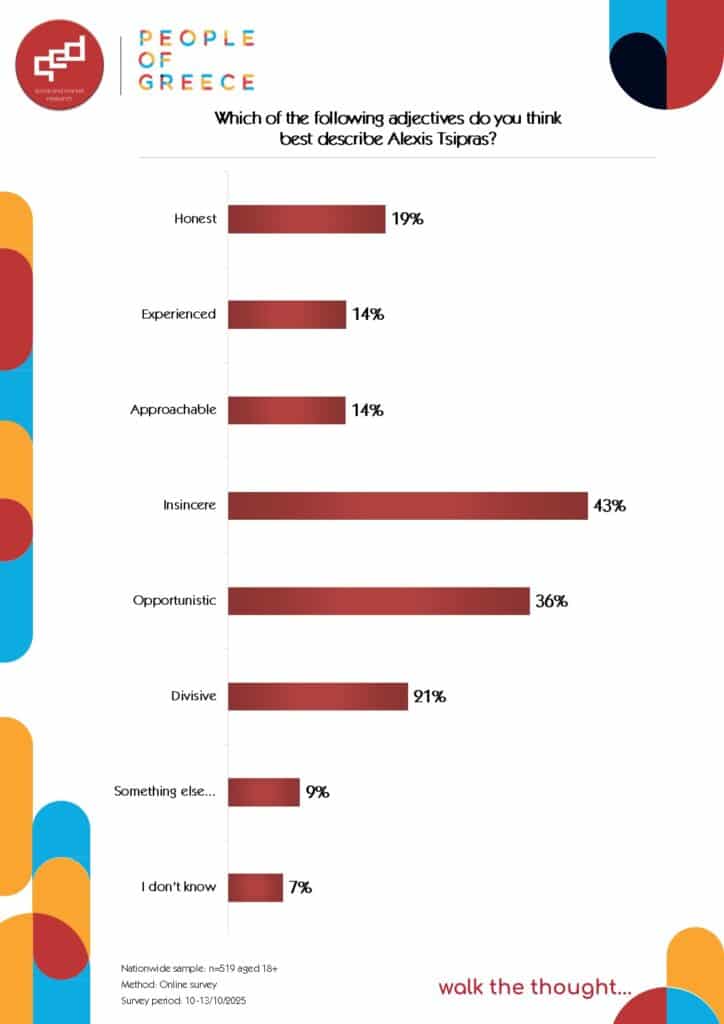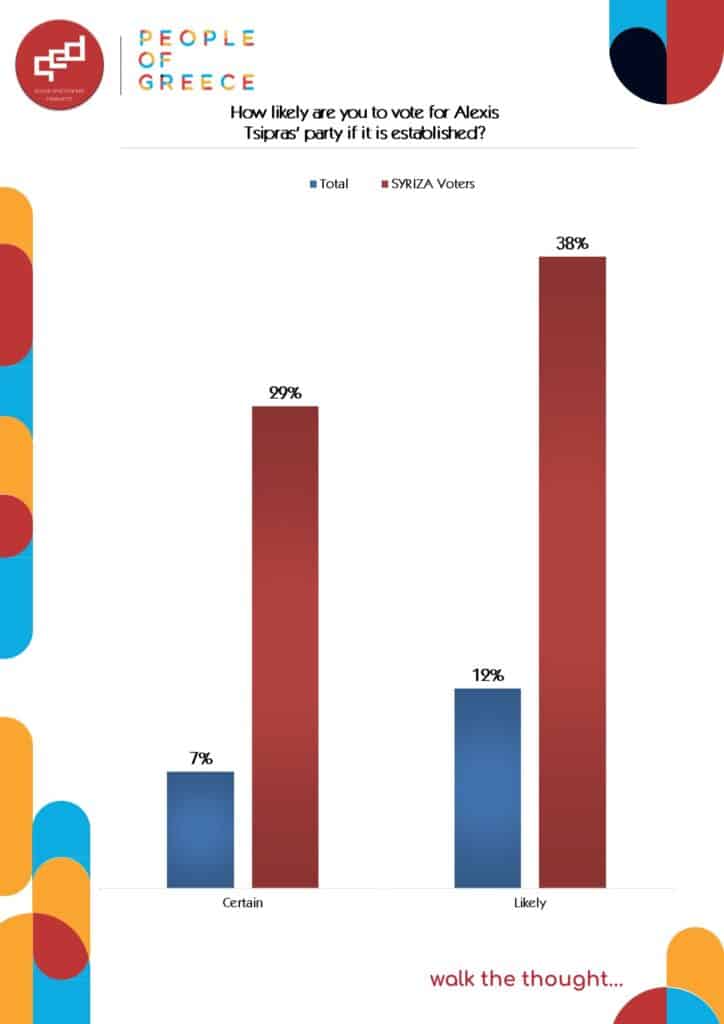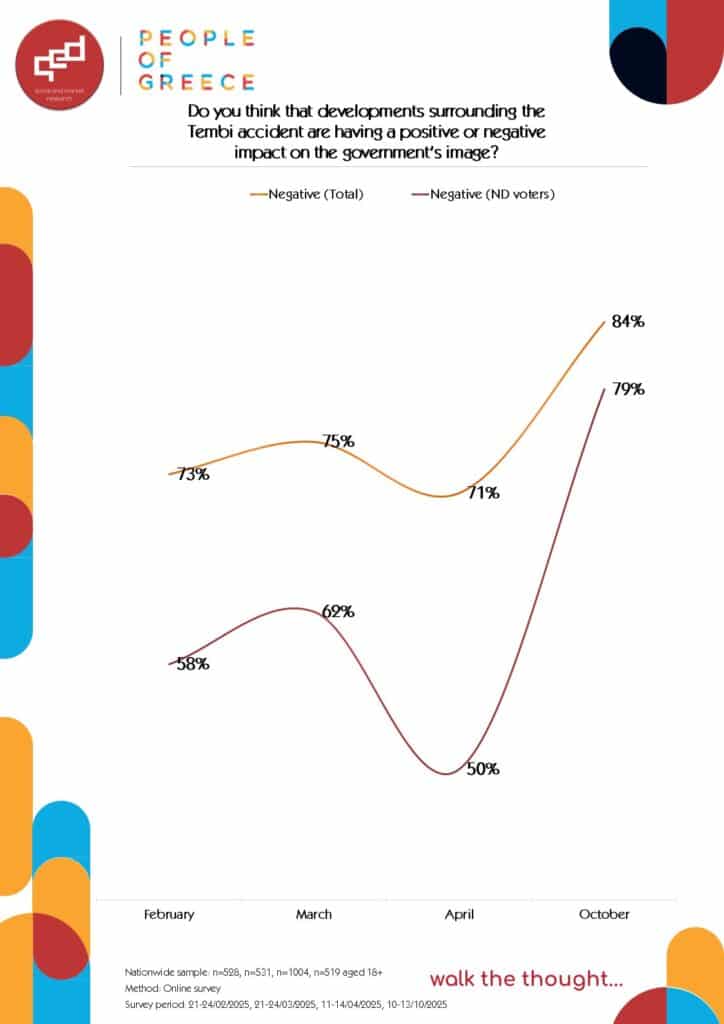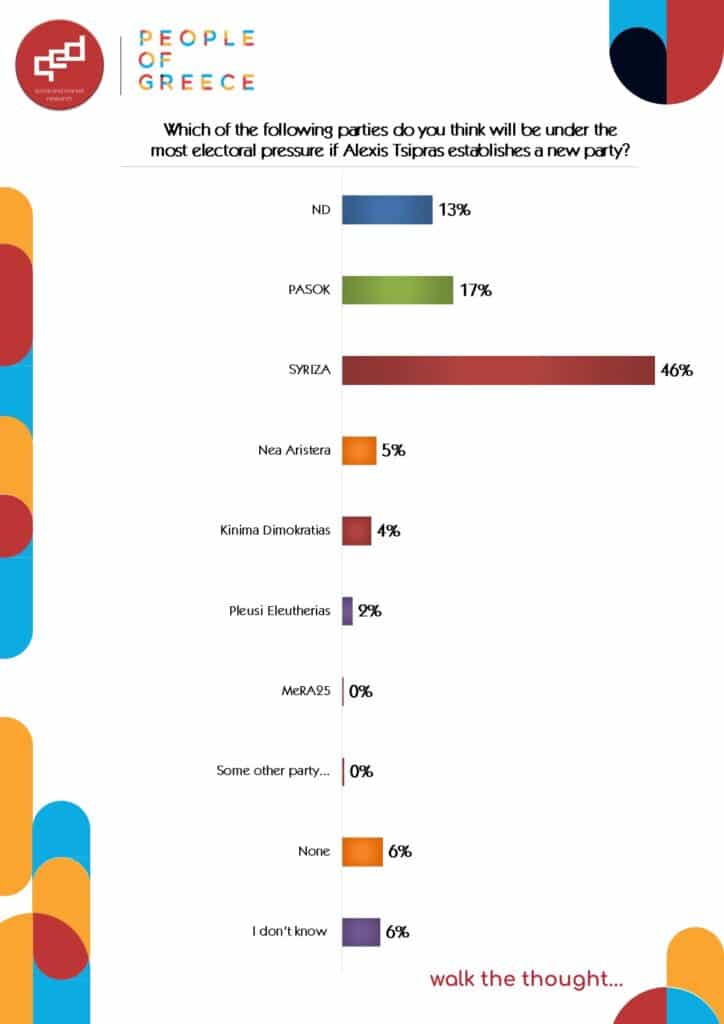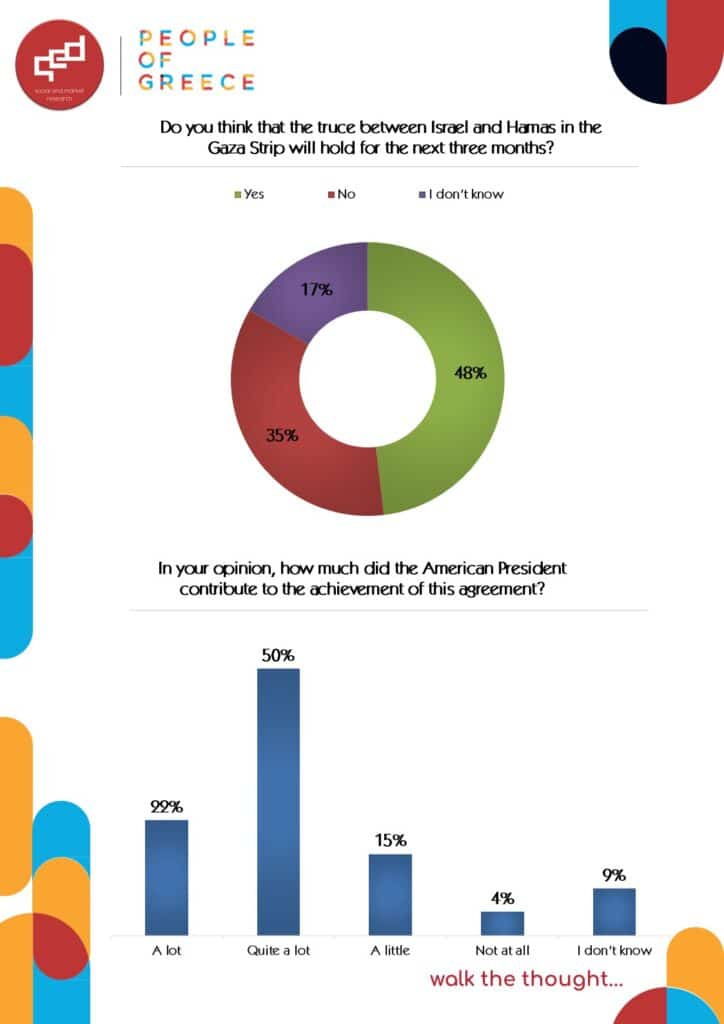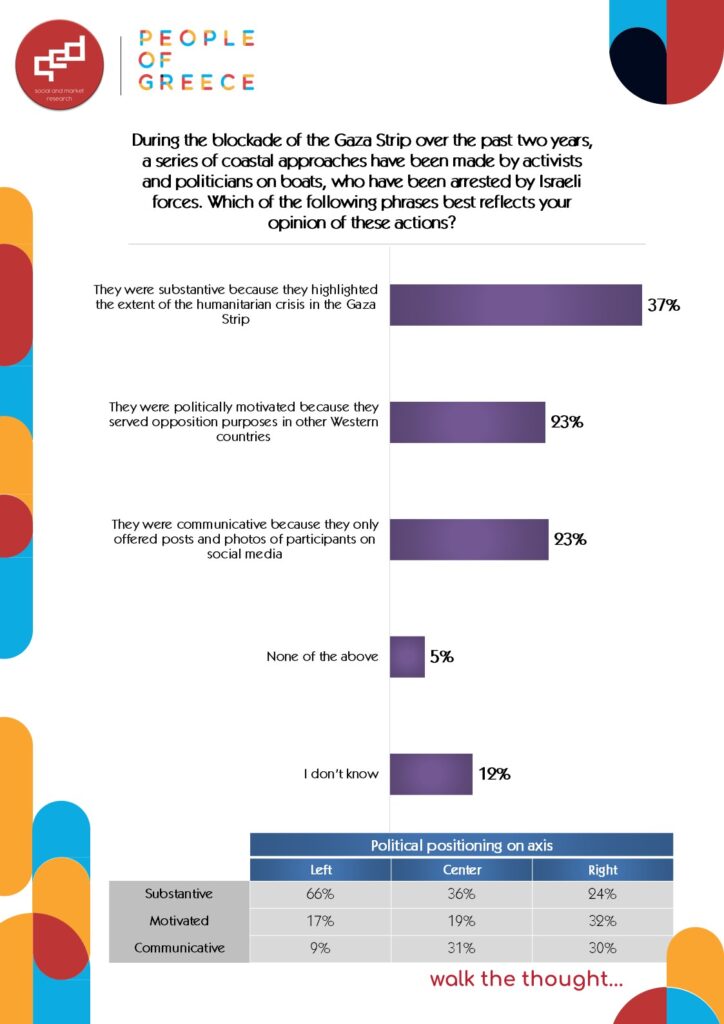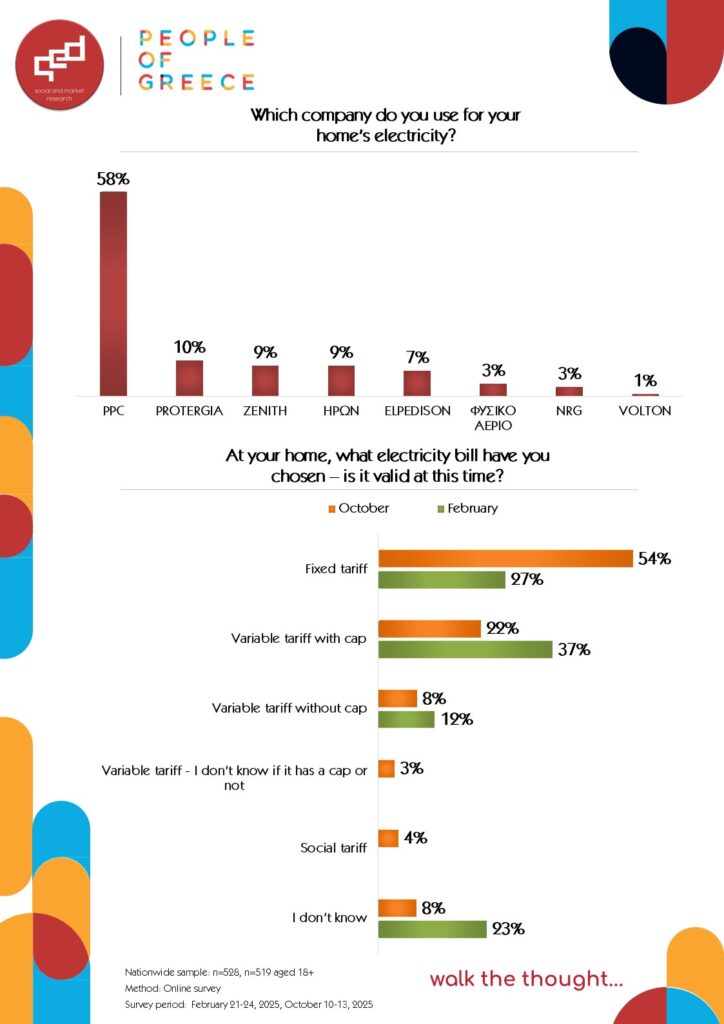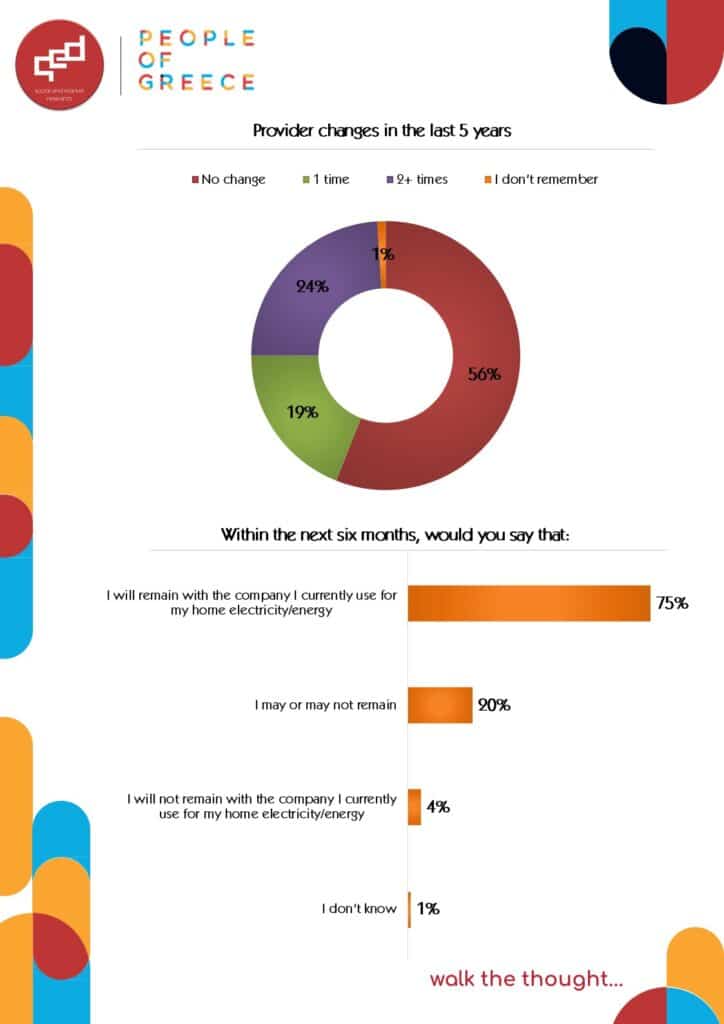
Events of the week 9-16/10:
This week, Greeks watched:
- Alexis Tsipras resign from his position as a member of parliament for SYRIZA, fueling rumors that he is founding a new party,
- the announcement of the start date for the trial concerning the deadly train accident in Tembi,
- the signing of a ceasefire between Israel and Hamas in the Gaza Strip.
On the sidelines of the above news, the People of Greece platform recorded the habits of energy market consumers with regard to the trend of changing providers and tariffs.
What do we learn about Greece and the Greeks from this week’s findings?
- The popularity of a potential party led by Alexis Tsipras is estimated at between 7% and 19%, while the majority of Greek society (60%) views him negatively.
- Even among SYRIZA voters in 2023, when Alexis Tsipras was still the party leader, only two in three say they are certain or somewhat likely to support a party founded by Alexis Tsipras.
- The overwhelming majority of Greeks believe that the center-left is “cannibalizing” itself when it multiplies its formations. SYRIZA is seen as the first victim of the entry of a new party led by Alexis Tsipras into the political arena.
- The issue of Tembi remains explosive, and its impact on political affairs is far from diminishing with the passage of time. Eighty-four percent of Greeks believe that developments surrounding the issue are negatively affecting the image of the New Democracy party, an increase of more than 10% compared to the spring 2025 polls.
- Greeks appear skeptical about the maintenance of the ceasefire in the Gaza Strip, while the majority attribute its achievement to the US President.
- The symbolic actions of activists on the shores of the Gaza Strip are interpreted in completely different ways by subgroups with different ideological orientations, with those on the left characterizing them as meaningful and those on the right characterizing them as provocative or communicative.
- Greek energy consumers are increasingly turning to fixed electricity tariffs rather than variable ones, while 24% say they do not rule out the possibility of changing energy providers.
What did the survey reveal?
